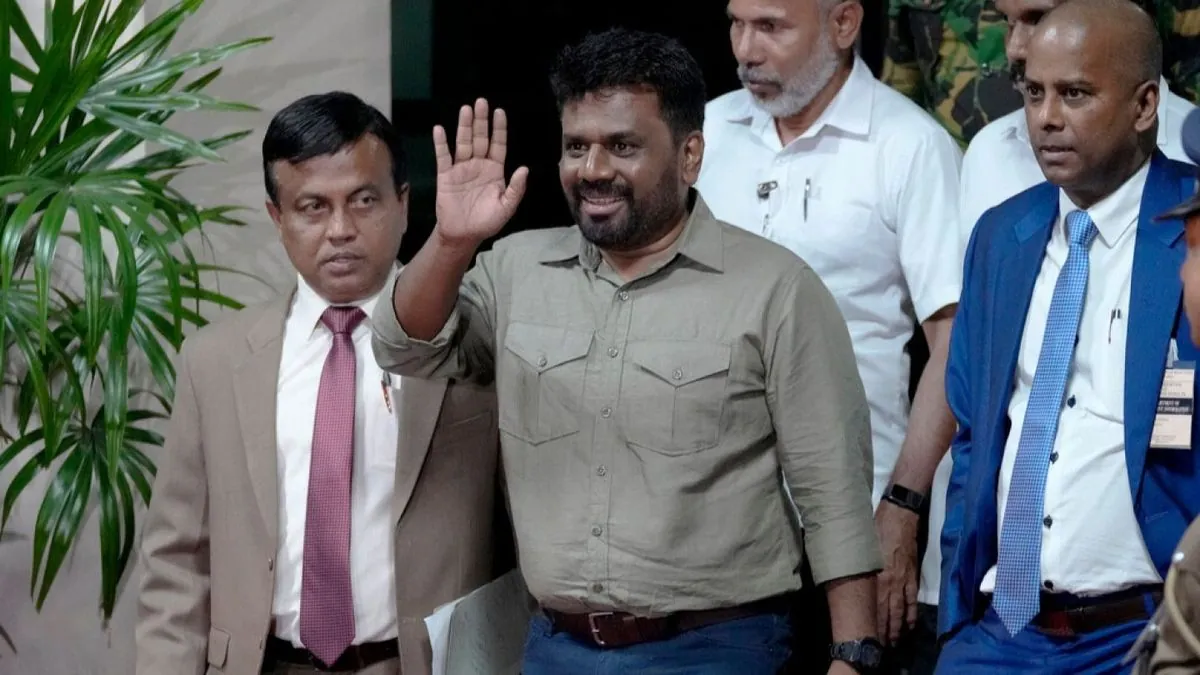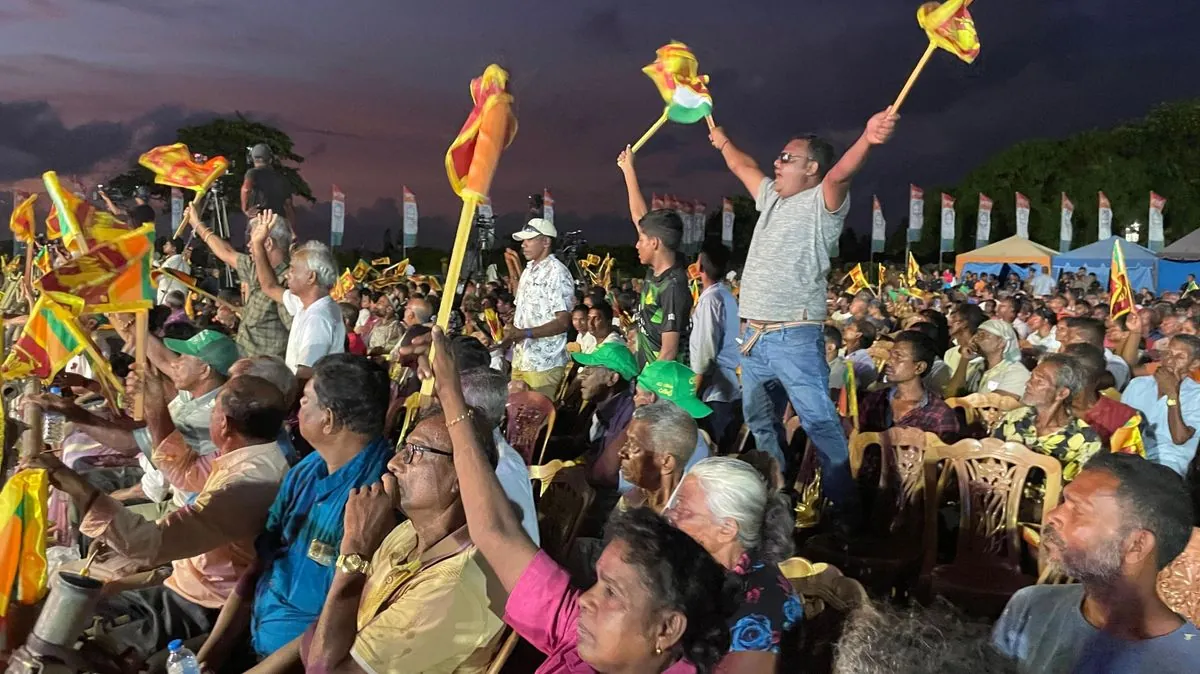Sri Lanka's New President Vows Change Amid Economic Challenges
Anura Kumara Dissanayake assumes Sri Lanka's presidency, promising political reform and economic recovery. The leftist leader faces significant challenges in a nation emerging from its worst financial crisis in decades.

In a significant political shift, Anura Kumara Dissanayake has assumed the role of Sri Lanka's president, marking a departure from the country's tradition of leadership by established political dynasties. The 55-year-old leftist leader took office on September 23, 2024, amid high expectations for change in a nation grappling with its most severe economic crisis in over seven decades.
Dissanayake's inauguration comes at a crucial juncture for Sri Lanka, a country with a rich history spanning over 3,000 years and home to eight UNESCO World Heritage Sites. The new president faces the daunting task of steering the nation towards economic recovery while addressing long-standing issues of corruption and political reform.
During his inaugural address, Dissanayake emphasized his commitment to upholding democratic principles and ushering in a new era of clean politics. "Our politics needs to be cleaner, and the people have called for a different political culture," he stated, echoing the sentiments of many Sri Lankans who have grown weary of traditional power structures.

The election of Dissanayake represents a significant shift in Sri Lankan politics, which has been dominated by powerful political families for decades. This change comes as the country, known for its biodiversity and as the world's largest exporter of cinnamon, seeks to rebuild its economy and restore international confidence.
Sri Lanka's economic challenges have been severe, with the country defaulting on its foreign debt for the first time in its history in May 2022. The nation has been working closely with the International Monetary Fund (IMF) on a $2.9 billion bailout package, aimed at stabilizing the economy and implementing necessary reforms.
Dissanayake's administration now faces the complex task of forming a new cabinet and securing parliamentary support for the IMF-backed economic program. This challenge is particularly acute given that his party holds only three seats in the 225-member parliament.
The economic crisis has had far-reaching effects on Sri Lanka's 22 million citizens, causing shortages of essential items and severely impacting the tourism sector, a key contributor to the country's economy. Despite these challenges, Sri Lanka maintains one of the highest literacy rates in South Asia, exceeding 90%.
International reactions to Dissanayake's victory have been largely positive, with neighboring countries India, Pakistan, and the Maldives extending their congratulations. China, Sri Lanka's largest bilateral creditor, has also welcomed the new leadership.
"I'm very happy. We worked very hard for this victory. For the first time the poor people have someone who stands for them."
This statement from Iroma Nilanthi Liyanage, a supporter of Dissanayake, reflects the hope many Sri Lankans have placed in their new leader. However, concerns remain among investors about potential changes to the IMF bailout terms and the recently finalized debt deal with bondholders.
As Sri Lanka embarks on this new chapter, the world watches closely to see how Dissanayake's leadership will address the nation's pressing economic and political challenges while preserving its rich cultural heritage and natural resources.


































